
-
Trouvez la bonne nourriture pour votre animalUne nutrition appropriée est essentielle pour que les animaux vivent heureux et en bonne santé. Découvrez ici les nourritures qui répondent aux besoins nutritionnels uniques de votre animal.Trouvez la bonne nourriture pour votre animalUne nutrition appropriée est essentielle pour que les animaux vivent heureux et en bonne santé. Découvrez ici les nourritures qui répondent aux besoins nutritionnels uniques de votre animal.Produits vedettes
 0
018 % moins de calories que Hill’s Science Diet pour adultes
Acheter maintenant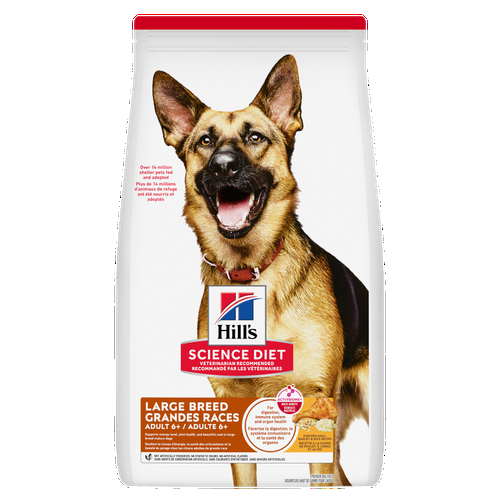 Hill’s Science Diet, recette à la farine de poulet, à l’orge et au riz, Adulte 6+
Hill’s Science Diet, recette à la farine de poulet, à l’orge et au riz, Adulte 6+Soutient l’énergie et un beau pelage. Aide à garder le système immunitaire, les articulations, le cœur et les reins en santé.
Acheter maintenant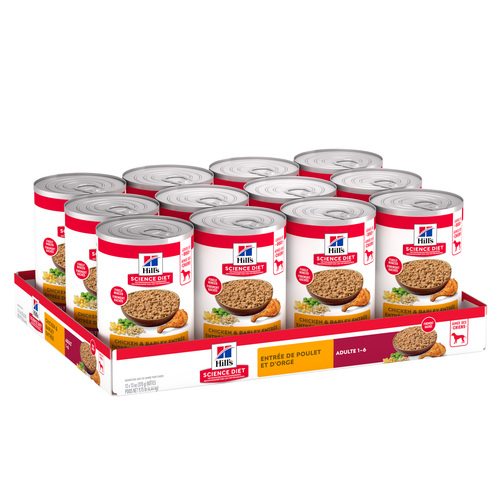 0
0Recette au poulet et à l’orge offrant une nutrition équilibrée avec précision pour garder les chiens adultes actifs et en bonne santé
Acheter maintenantProduits vedettes 0
0Des fibres naturelles qui réduisent confortablement les boules de poils
Acheter maintenant Perfect Digestion Adulte 7+ pour chats, Recette de poulet, d'orge et d'avoine entière
Perfect Digestion Adulte 7+ pour chats, Recette de poulet, d'orge et d'avoine entièreLa nourriture révolutionnaire de Science Diet favorise le bien-être digestif ultime et la santé du microbiome chez les chats âgés de 7 ans et plus
Acheter maintenant Nourriture pour chats d’intérieur adultes, recette au poulet
Nourriture pour chats d’intérieur adultes, recette au pouletUne digestion saine pour faciliter le nettoyage du bac à litière
Acheter maintenant -
Chien
- Conseils et articles sur les chiens
-
Catégorie de santé des chiens
- Gestion du poids
- Sensibilités alimentaires et environnementales
- Santé urinaire
- Santé digestive
- Santé articulaire
- Santé rénale
- Soins cancer
- Soins dentaire
-
Stade de vie du chien
- Nourriture pour chiots
- Nourriture pour chiens adultes
- Nourriture pour chiens séniors
Chat- Conseils et articles sur les chats
-
Catégorie de santé des chats
- Gestion du poids
- Sensibilités cutanées et alimentaires
- Santé urinaire
- Santé digestive
- Santé rénale
- Soins dentaire
- Problèmes de Stress
- Soins cancer
-
Stade de vie du chat
- Nourriture pour chatons
- Nourriture pour chats adultes
Articles en vedette Conseils pour l’entreposage de nourriture pour chats ou pour chiens
Conseils pour l’entreposage de nourriture pour chats ou pour chiensVoici les questions qui nous sont fréquemment posées ainsi que nos recommandations pour un entreposage optimal de toutes les nourritures sèches et en conserve pour chats ou pour chiens de marque Hill’s.
En savoir plus Comprendre le microbiome de son animal domestique
Comprendre le microbiome de son animal domestiqueDécouvrez ce qu'est le microbiome d'un animal, comment il contribue à l'intestin et à la santé générale de votre animal, et pourquoi la nutrition est importante pour maintenir des microbiomes sains.
En savoir plus Antioxydants : arme puissante pour lutter contre les radicaux libres
Antioxydants : arme puissante pour lutter contre les radicaux libresEn savoir plus sur les radicaux libres et comment les antioxydants aident à fournir une certaine protection contre les radicaux libres et comment les aliments pour animaux de compagnie Hills fait une différence.
En savoir plus -
Soutien à la communauté

 Une nutrition fondée sur la science crée des différences en lesquelles vous pouvez avoir confiance.
Une nutrition fondée sur la science crée des différences en lesquelles vous pouvez avoir confiance.


Decorating with plants and flowers is a great way to beautify your home, but some of your favorite foliage can be toxic to your feline friend. Before adding new greenery to your home or garden, read up on poisonous plants to cats so that you can keep your kitty safe.
Plants That Are Poisonous to Cats
From houseplants to garden plants, including vegetables and herbs, here is just a selection of plants and flowers toxic to cats:
1. Lilies: People tend to use "lily" as an all-encompassing term, but there are about 90 species in all, including the Asiatic lily, Easter lily and lily of the valley. What do they have in common other than a name? They're all poisonous plants to cats. In fact, they're one of the most toxic plants for your feline friend; ingestion can lead to immediate kidney failure.
2. Eucalyptus: Though rich in fiber, eucalyptus isn't part of a healthy diet — the leaves are toxic to most animals, except koalas and a few wild bird species.
3. Jade: Succulents, like jade, are the perfect option for those who don't have a green thumb because they're low-maintenance and beautiful. Unfortunately, jade is also one of several succulents that are poisonous to cats.
4. Milkweed: Planting milkweed in gardens has become a popular way to support monarch butterfly populations. However, the fruit of the milkweed plant is toxic to both wildlife and humans.
5. Onion: Onions are a staple of dinner tables around the globe, especially in China and India, the top two onion-producing countries. But onions, as well as garlic, leeks, scallions, chives and shallots, are toxic to many animals, including cats and dogs.
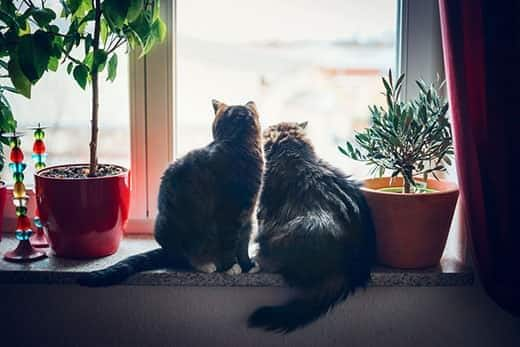
6. Tomato: The fruit of the tomato is harmless to your kitty, but its stem and leaves can be toxic. Add this to your list of people food not to give your cat.
7. Daffodils: These popular springtime annuals, with their deep yellow and white coloring, look terrific bunched together. But don't let their beauty deceive you. According to a study published in the Canadian Veterinary Journal, daffodil flowers, leaves and bulbs can all be poisonous to cats.
8. Hyacinths: Sweet-smelling hyacinth flowers are native to the eastern Mediterranean. Close relatives include water hyacinths, native to Texas, and the tulip. Despite their beauty, these bulb flowers contain alkaloids that can be dangerous for your kitty.
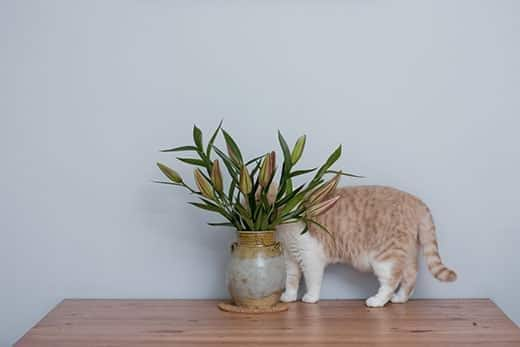
9. Mistletoe: The practice of kissing under the mistletoe dates back to the 18th century. For cats, though, these plants don't lead to everlasting love but to serious health issues, including cardiovascular shutdown. Other holiday plants, like amaryllis, also pose problems for your cat's health and should be kept out of the house.
10. Mandrake: The flowering mandrake shrub originated in the Mediterranean region and has had a mythical reputation for centuries. But its toxicity isn't just folklore: The mandrake root is highly poisonous to cats (and to humans).
11. Azaleas: Part of the rhododendron family, an azalea is a small, deciduous species in which the whole plant can be considered poisonous to a cat that may involve gastrointestinal, cardiovascular or central nervous system issues, says the Pet Poison Helpline.
Other common plants that are toxic to cats include:
- Croton (Joseph's Coat)
- Caladium (Elephant Ear)
- Dieffenbachia (Dumb Cane)
- Ficus (rubber plants, weeping and variegated fig plants)
- Philodendron
- Monstera (Swiss Cheese Plant)
- Oleander
- Poinsettia
- Christmas Cherry
- Holly Berries
Toxicity can vary based on the type of plant and how much is ingested. For instance, poinsettias, common during holiday seasons, have a mild toxicity to cats, however for certain cats or certain amounts of consumption can result in severe enough clinical signs worthy of medical treatment. If you're curious about getting a new plant for the home, but want to know if it is poisonous to your cat, the Pet Poison Helpline is a good resource to check against numerous types of plants.


Conseils savoureux
Les chatons peuvent nécessiter plusieurs visites de vaccination au cours de leur première année. Les chats adultes bénéficient généralement d'un contrôle annuel, tandis que les chats âgés ou ayant des besoins spécifiques peuvent nécessiter des visites plus fréquentes.
Signs of Ingestion
Every plant toxin can cause a different reaction. For example, if your cat eats a plant in the onion family, it could harm your kitty's red blood cells and cause anemia, leading to weakness, reduced appetite and pale gums. If your cat consumes a jade plant, they might vomit or seem uncoordinated, according to the ASPCA.
While side effects differ depending on the specific plant, there are common signs of poisoning you can watch out for, including:
- Vomiting
- Diarrhea
- Coughing
- Difficulty breathing
- Disorientation
- Heart palpitations
- Loss of appetite
- Dilated pupils
- Excessive licking or scratching
Unless you catch your cat in the act, you may not know they've ingested toxic plant material. If your kitty exhibits any of these signs for an unknown reason and has access to plants or flowers poisonous to cats, contact your veterinarian right away.
What to Do If Your Cat Ingests a Poisonous Plant
If you suspect your cat has ingested poisonous plants, call your vet immediately. If your vet isn't available, call a pet poison control center. Keep these phone numbers handy in the event of an emergency.
Unless a pet health professional tells you to do so, don't try to induce vomiting in your cat, emphasizes Vets Now — in some cases, it can be more dangerous for them to vomit whatever they consumed than to leave the toxin in their stomach. Always follow the vet's specific instructions.
At the veterinary clinic, the vet will perform an exam and any blood tests required to diagnose the poisoning and determine the treatment.
Poison Prevention
Keeping your indoor kitty safe from poisonous plants to cats is fairly easy — don't bring toxic plants into your home, even if it means declining a gorgeous bouquet of flowers.
It gets a little trickier for outdoor cats, but there are ways you can reduce the chance of accidental ingestion. International Cat Care recommends that you remove the most dangerous plants from your garden and check if there are any potentially toxic plants in your neighbors' gardens. In the event that your cat gets sick, you'll be able to share the likely culprits with your vet, which will allow them to better determine the cause of poisoning and the proper treatment.
Before sprucing up your home with fresh flowers and greenery, do some research and speak with your vet to ensure that your choices don't include poisonous plants to cats. There are plenty of safe options, like African violets, jasmine and begonias, that are eye-catching and safe for your feline friend.


Christine O'Brien est écrivaine, maman et propriétaire de chats depuis longtemps. Ses deux bleus russes sont les rois de la maison. Ses articles sont également publiés dans Care.com, What to Expect et Fit Pregnancy, où elle écrit sur les animaux de compagnie, la grossesse et la vie de famille. Retrouvez-la et suivez-la sur Instagram et Twitter @brovelliobrien.
Produits connexes
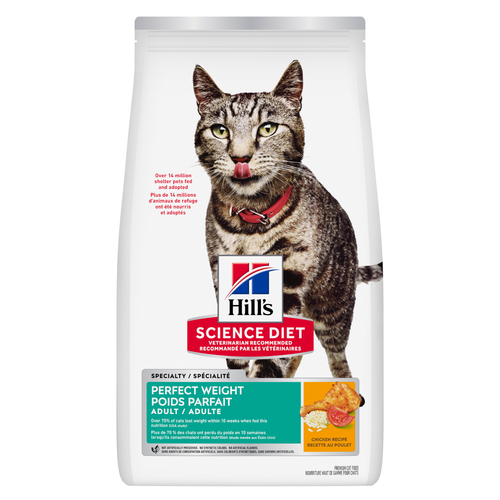
Perte de poids constatée dans les 10 premières semaines chez plus de 70 % des chats nourris avec cette nourriture (étude menée aux États-Unis)

La nourriture révolutionnaire de Science Diet favorise le bien-être digestif ultime et la santé du microbiome
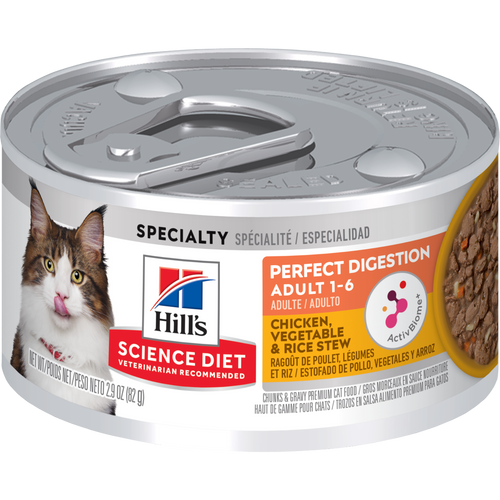
La nourriture révolutionnaire de Science Diet favorise le bien-être digestif ultime et la santé du microbiome
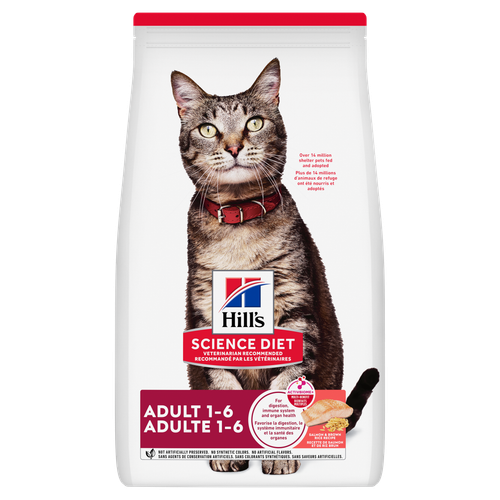
Soutient la masse musculaire et un beau pelage chez les chats adultes
Articles connexes
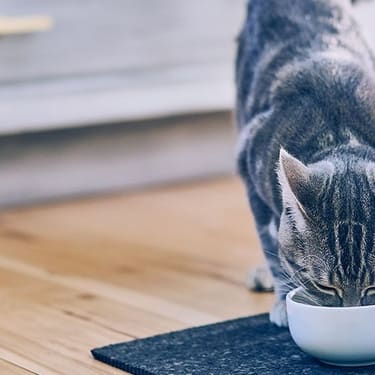
Comme les humains, les chats peuvent avoir occasionnellement l’estomac dérangé. Si votre chat présente les symptômes suivants, surtout après avoir mangé, il se peut qu’il ait un estomac fragile.
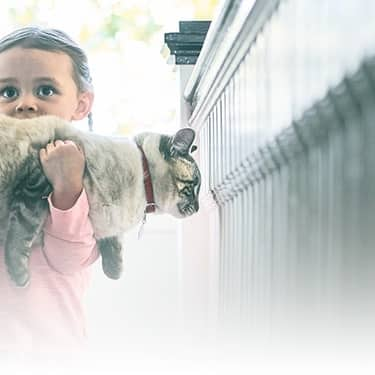
Comme le sait tout propriétaire, caresser un chat est un des plaisirs simples de la vie. Le mouvement de la main glissant sur une fourrure épaisse et lustrée procure autant de plaisir au chat qu’à son maître. Malheureusement, si le chat a des problèmes de peau, ce plaisir simple peut devenir désagréable.
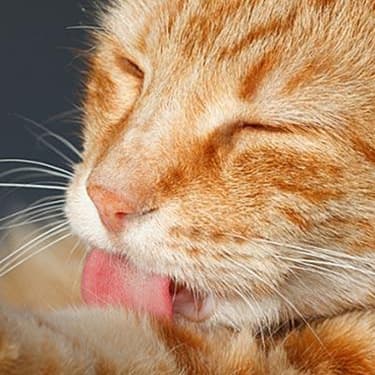
Si vous avez un chat, vous avez pu observer les efforts quʼil met à garder sa fourrure propre. Cependant, en raison de son apparence soignée, il peut s’écouler un certain temps avant que vous n’identifiiez les problèmes de peau qui peuvent l’incommoder.
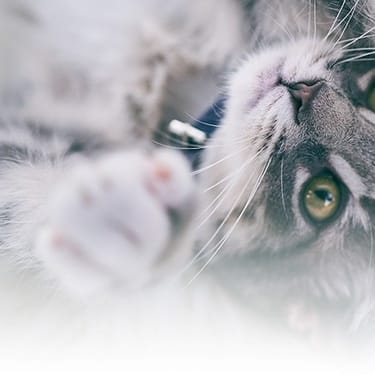
Tout comme une bonne santé dentaire est importante pour votre bien-être, elle est aussi très importante pour la santé de votre chat.

Mettez votre chat au régime sans qu'il le sache
Notre formule hypocalorique vous aide à contrôler le poids de votre chat. Riche en protéines de haute qualité pour développer une masse musculaire maigre, elle est élaborée avec des ingrédients ciblés pour un repas savoureux et nutritif. Des antioxydants cliniquement prouvés, comme les vitamines C et E, contribuent au bon fonctionnement du système immunitaire.
Mettez votre chat au régime sans qu'il le sache
Notre formule hypocalorique vous aide à contrôler le poids de votre chat. Riche en protéines de haute qualité pour développer une masse musculaire maigre, elle est élaborée avec des ingrédients ciblés pour un repas savoureux et nutritif. Des antioxydants cliniquement prouvés, comme les vitamines C et E, contribuent au bon fonctionnement du système immunitaire.